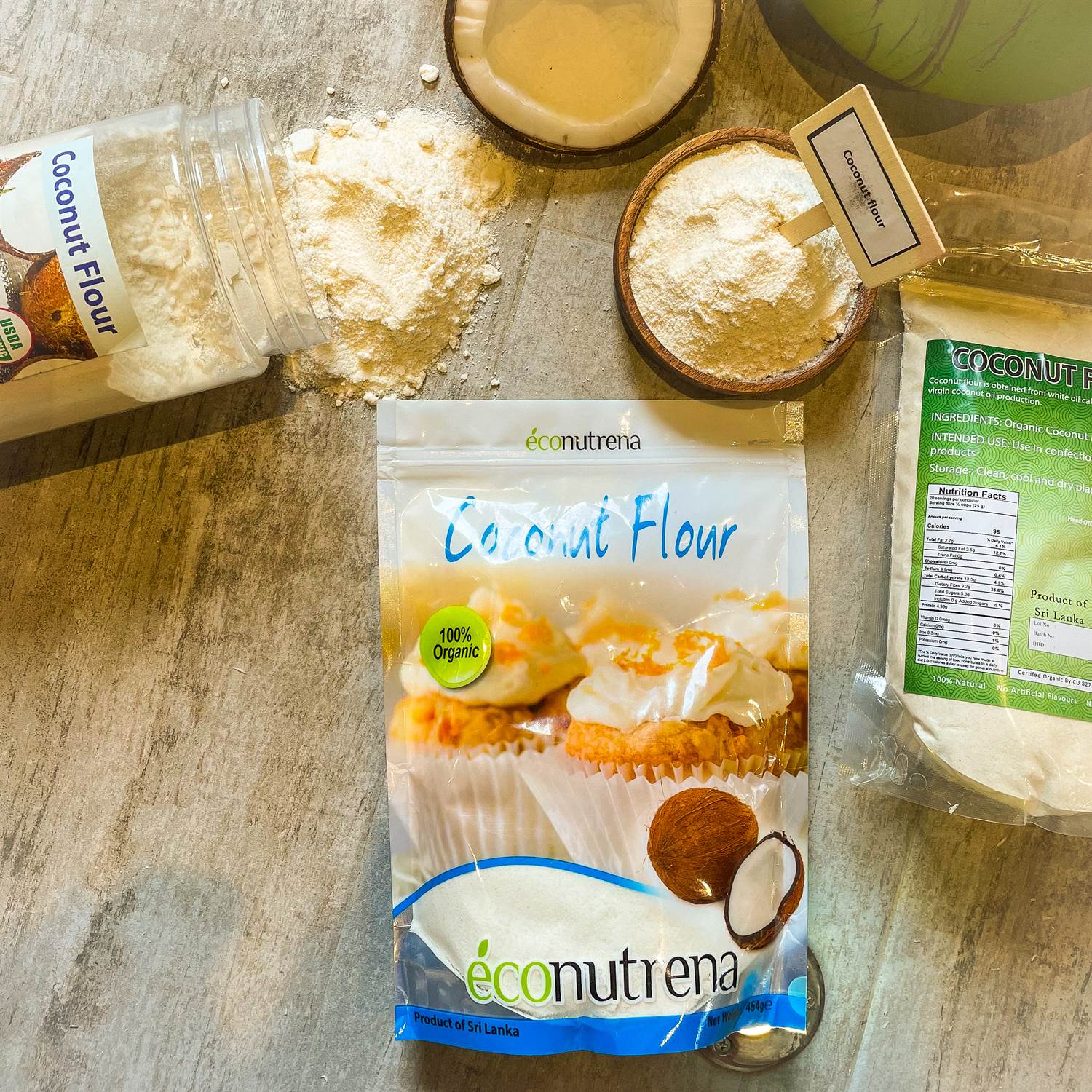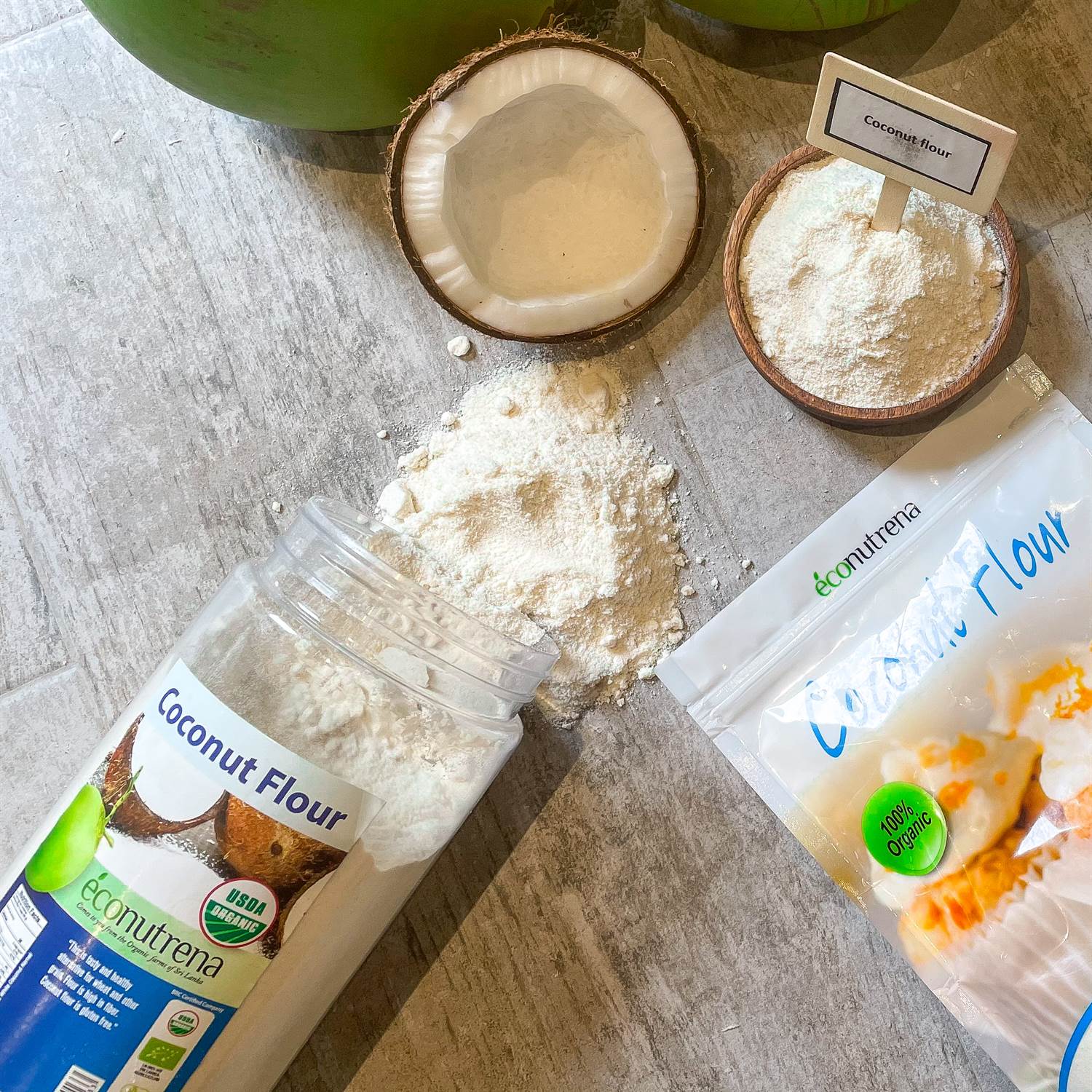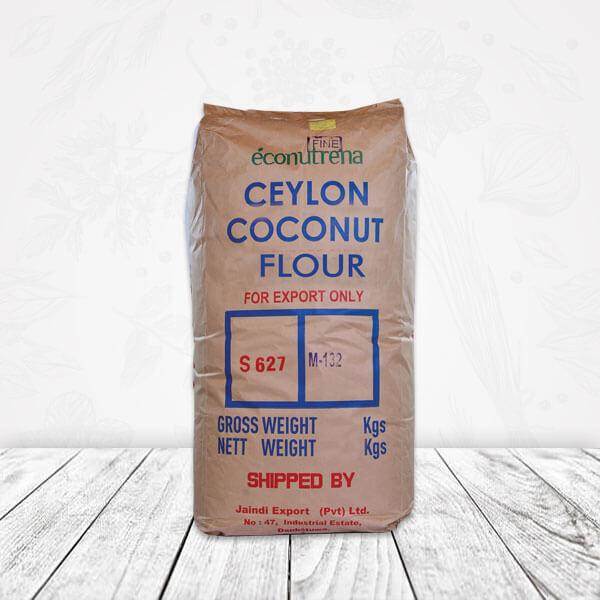Coconut flour is obtained from white oil cake which is a byproduct of virgin coconut oil production.
Coconut Flour has grown in popularity over recent years due to its many health benefits It is a low-carb, gluten-free baking alternative to wheat flour. And it provides a good source of protein and fiber, it has an extremely low moisture content that is ideal for baking cookies, breads, cakes, waffles, and even crepes. And who doesn’t love a good crepe.
Our Organic Coconut Flour is made from fresh, ripe organic coconuts. After manually separating the rich, white coconut meat from its shells, we shred and press it to reduce fat and moisture, then mill it into a fine flour to achieve a texture reminiscent of wheat flour. A gluten-free, plant-based source of protein and fiber, it’s wonderful in baked foods and splendid in smoothies.
Organic Coconut
Nutritional values per 100g
Energy 388.3 kcal
Total fat 10.80 g
Saturated Fatty Acid 10.21 g
Protein 19.80 g
Total Carbohydrates 54.10 g
Sugar 21.10 g
Sodium 39.7 mg
Dietary fiber 36.90 g
Consumer packs
250 g +/-1% Stand up pouch & Corrugated
500 g +/-1% Stand up pouch & Corrugated
Bulk
20 kg +/-1% g PE inner bag & Craft paper bags
25 kg +/-1% g PE inner bag & Craft paper bags
(Further packing sizes available on request)





